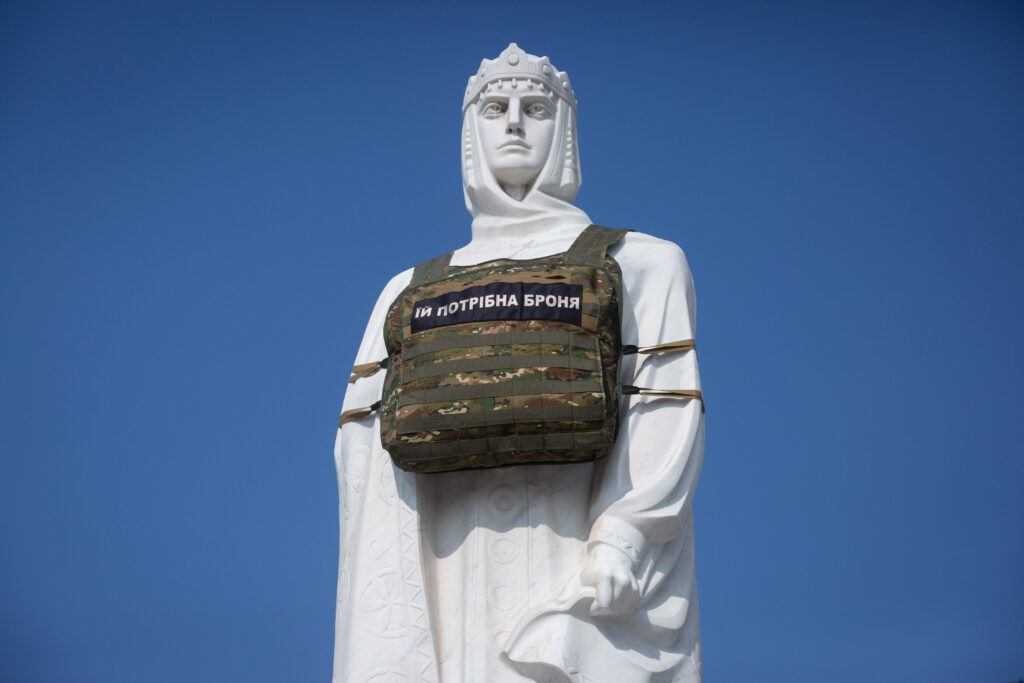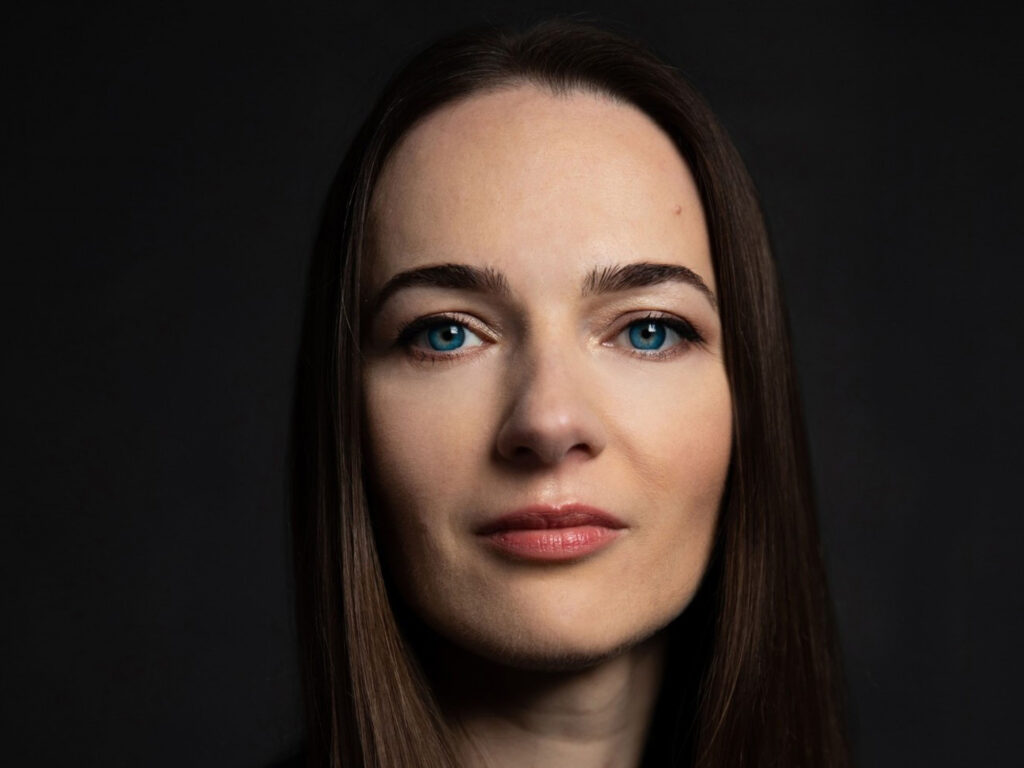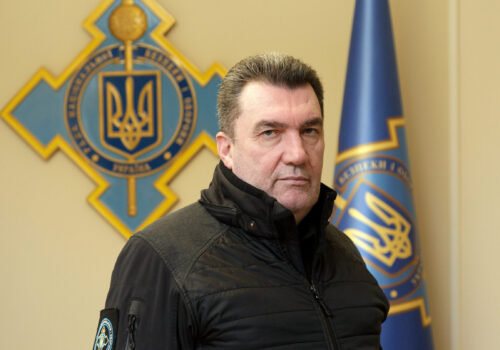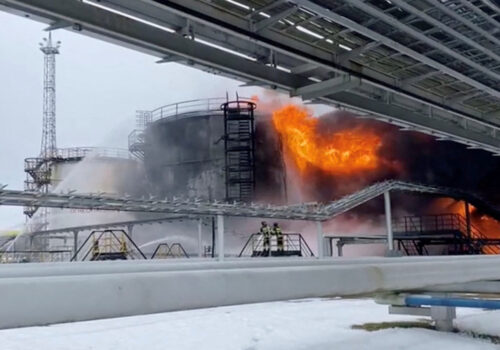As Ukrainians fight for national survival against Russia’s ongoing invasion, the country is continuing to implement important domestic reforms. These reforms play a crucial role in strengthening Ukraine’s wartime resilience, and also set the stage for a successful postwar recovery. The international community has a clear interest in helping Ukraine achieve further reform progress.
Since the onset of Russia’s full-scale invasion two years ago, one of the key catalysts driving Ukraine’s reform agenda has been the June 2022 move to grant the country EU candidate status. When announcing this decision, the European Commission set Ukraine seven key reform goals to meet before official EU membership negotiations could begin. Priorities included reforms related to the rule of law, particularly the reform of crucial judicial bodies such as the High Council of Justice (HCJ) and the High Qualification Commission of Judges (HQCJ).
While significant progress has been made toward implementing these reforms, major challenges persist. For example, although new procedures have been introduced governing the selection of judges to the country’s Constitutional Court, there are still concerns regarding the appointment of politically compromised candidates. As Ukraine continues its judicial reform efforts, it is imperative to infuse these endeavors with renewed energy.
Stay updated
As the world watches the Russian invasion of Ukraine unfold, UkraineAlert delivers the best Atlantic Council expert insight and analysis on Ukraine twice a week directly to your inbox.
Looking ahead, a primary focus should be on reforming Ukraine’s Supreme Court, which plays a crucial role in the country’s judiciary. In spring 2023, the National Anti-Corruption Bureau of Ukraine and the Specialized Anti-Corruption Prosecutor’s Office uncovered evidence of a $2.7 million bribe involving the president of the Supreme Court. However, in the wake of this corruption scandal, three-quarters of Supreme Court judges appointed another judge as the new president of the court despite serious integrity concerns.
NGOs and members of the Ukrainian judiciary have proposed a two-step approach to Supreme Court reform featuring the vetting of sitting judges and implementation of a new selection process with the involvement of international experts. This format has been endorsed by the European Commission. Reforming the Supreme Court is widely recognized as an essential step toward strengthening the rule of law, combating corruption, and enhancing protection for investors.
Another reform priority is establishing the High Administrative Court (HACU), following the liquidation of the District Administrative Court of Kyiv (DACK) in December 2022. The DACK was widely accused of judicial misconduct. It wielded substantial power, overseeing cases involving municipal authorities and central executive bodies in the Ukrainian capital, but had become tainted by successive corruption scandals. To safeguard the integrity of HACU judges and prevent future allegations of corruption, it is vital to implement a selection process with the meaningful involvement of independent international experts, similar to the successful model used to establish the High Anti-Corruption Court.
Eurasia Center events

Reform of Ukraine’s legal education system is also indispensable for the success of the country’s judicial reforms. The judicial system currently suffers from a significant shortage of personnel, underscoring the need for a robust legal education system. Detrimental practices include the training of lawyers by traditional universities and law enforcement institutions. These institutions educate one-third of all legal professionals and receive about half of state funding allocated for legal education. However, rather than promoting critical thinking, students often encounter a curriculum and environment that stresses obedience.
Critics argue that this approach fails to instill the necessary professional skills. Additionally, graduates from law enforcement academies typically exhibit lower levels of specialist knowledge compared to university graduates. The EU highlighted its concerns regarding legal education in the Ukraine Accession Report 2023, stressing the necessity of addressing this issue by separating the training of lawyers in universities and law enforcement academies. G7 countries have also raised this issue.
Ukraine’s ability to defend itself against Russian aggression depends heavily on continued international support. Kyiv’s partners therefore have considerable leverage when it comes to maintaining the country’s reform momentum. With this in mind, it is crucial for Ukraine’s international allies to link continued financial assistance with the implementation of reforms. The effectiveness of this approach can be seen in the progress made between summer 2022 and late 2023 on the reform goals identified by the EU.
The EU has already outlined its additional reform recommendations. It would also be helpful to establish concrete reform requirements from G7 countries and connect these directly to aid. By linking financial support to specific reform targets, Ukraine’s international allies can make sure critical reforms are implemented and the country continues to move in the right direction. The need to maintain Ukraine’s reform momentum is another strong argument in favor of confirming further direct US budget support as part of future aid. This will provide vital leverage while bolstering Ukraine’s resilience and encouraging the authorities in Kyiv to implement the necessary reforms.
The road ahead is extremely challenging, but Ukraine can still emerge as a regional beacon of democracy, Euro-Atlantic security, and the rule of law. This will require the unwavering support of the country’s Western partners. To achieve this goal, future aid should be tied to a steadfast Ukrainian commitment to advance reforms without concessions. This can help shape the kind of future Ukrainians are currently fighting for.
Mykhailo Zhernakov is chair of the board of the DEJURE Foundation. Nestor Barchuk is international relations manager of the DEJURE Foundation.
Further reading
The views expressed in UkraineAlert are solely those of the authors and do not necessarily reflect the views of the Atlantic Council, its staff, or its supporters.

The Eurasia Center’s mission is to enhance transatlantic cooperation in promoting stability, democratic values and prosperity in Eurasia, from Eastern Europe and Turkey in the West to the Caucasus, Russia and Central Asia in the East.
Follow us on social media
and support our work
Image: A statue of Princess Olga seen with a bulletproof vest during the presentation of a specially designed anatomical body armor for army women in Kyiv. According to the group's figures, 42,000 women serve in the Ukrainian army, 5,000 of those in the army are on the frontline and they need specially-designed army gears. (Photo by Oleksii Chumachenko / SOPA Images/Sipa USA)





